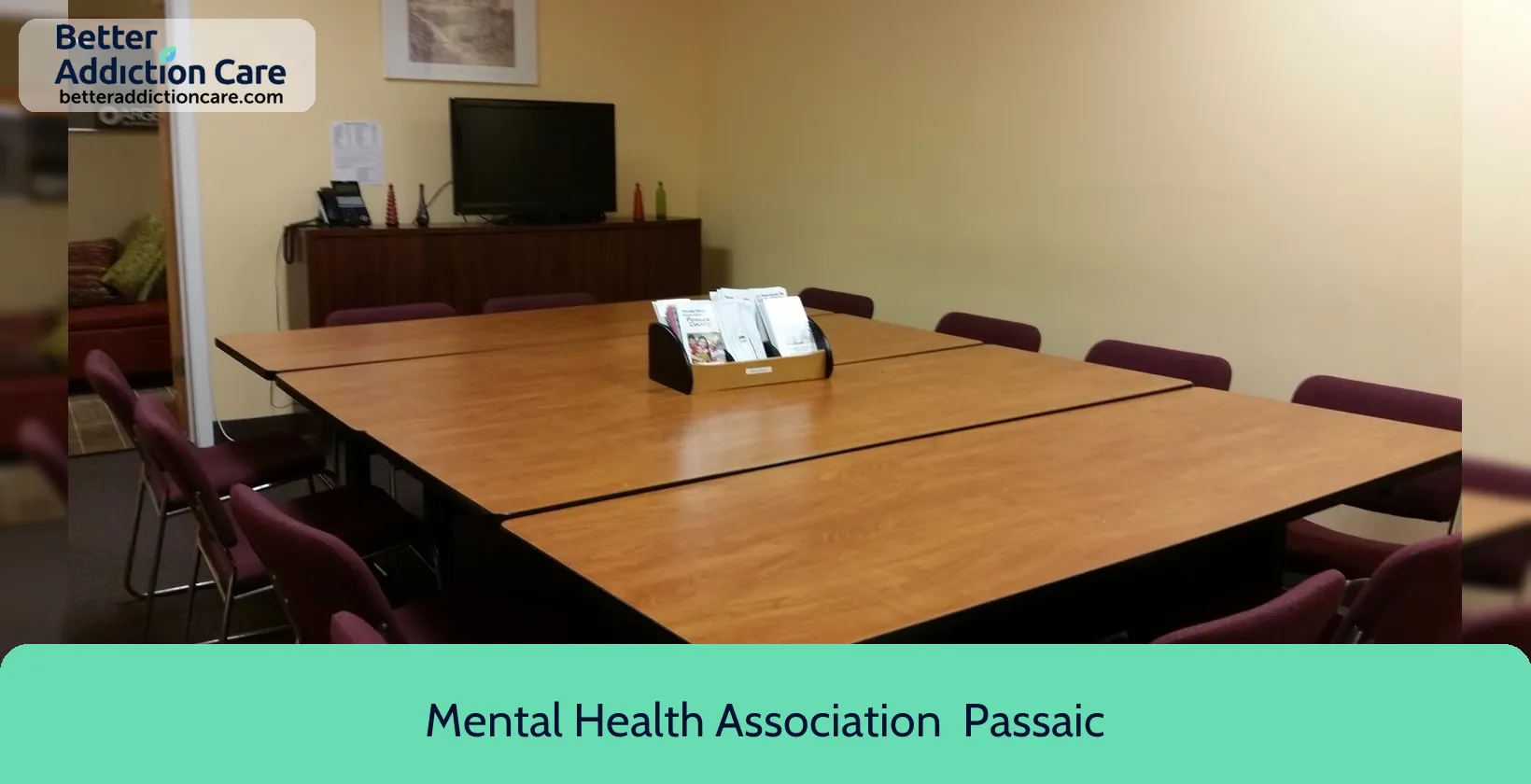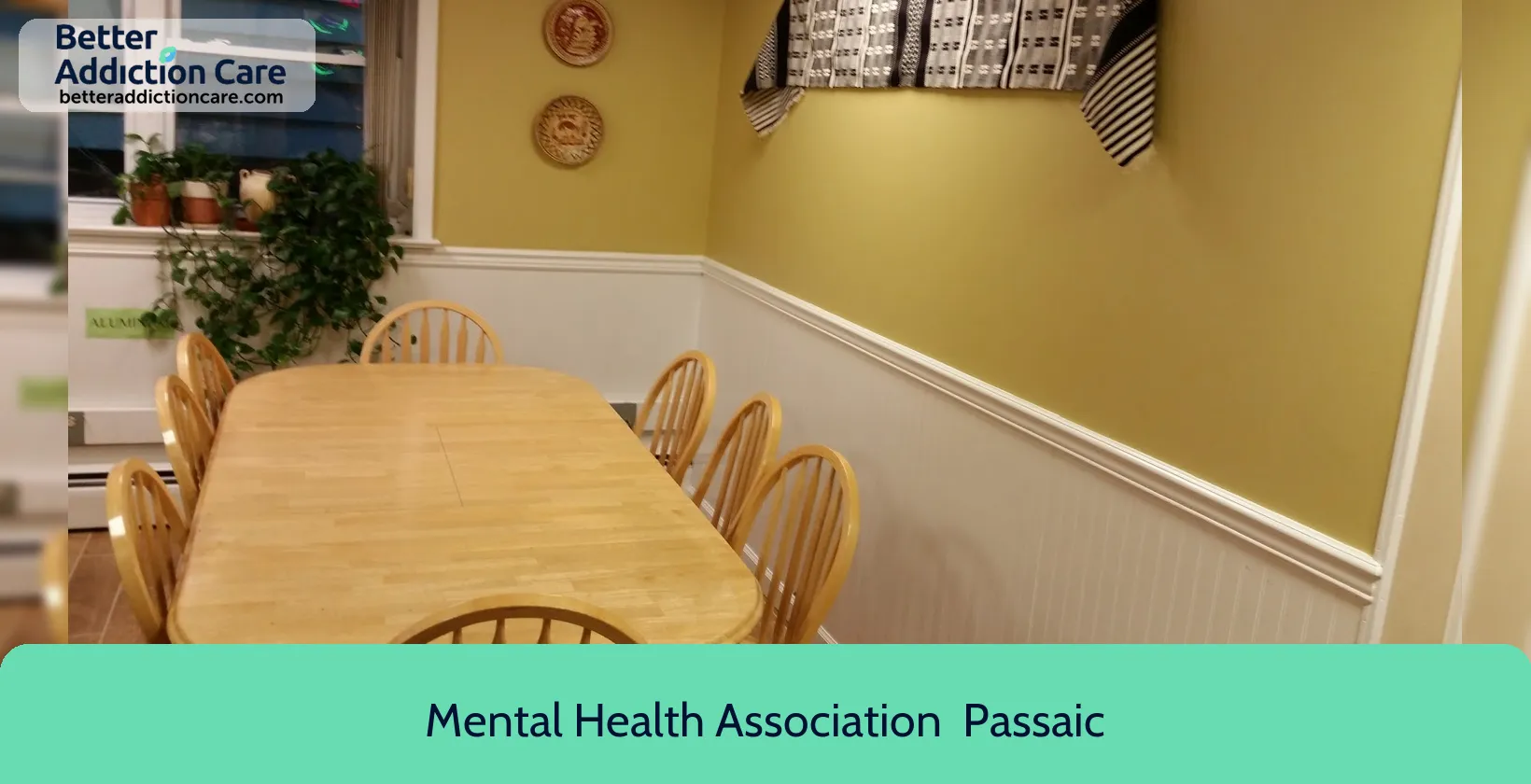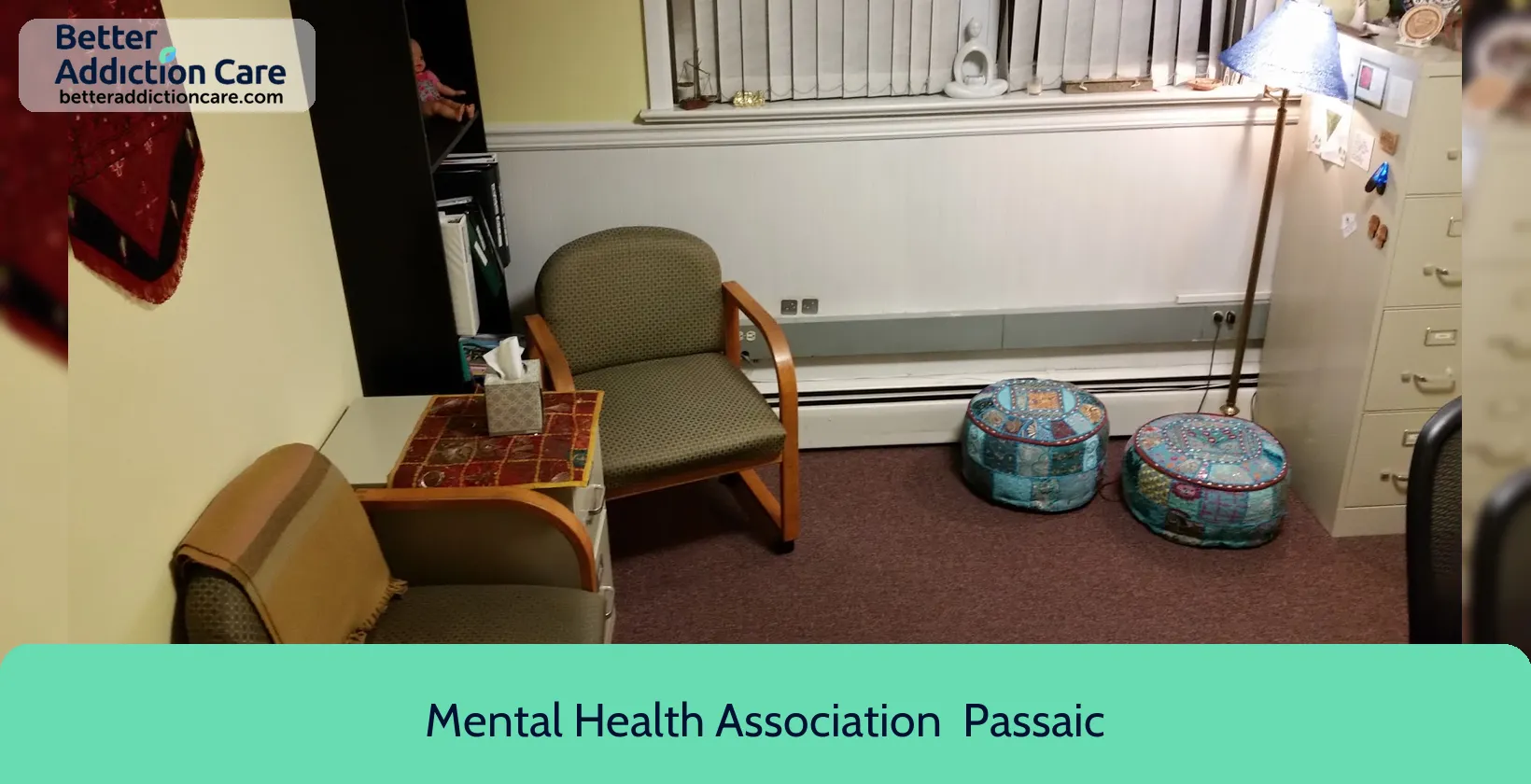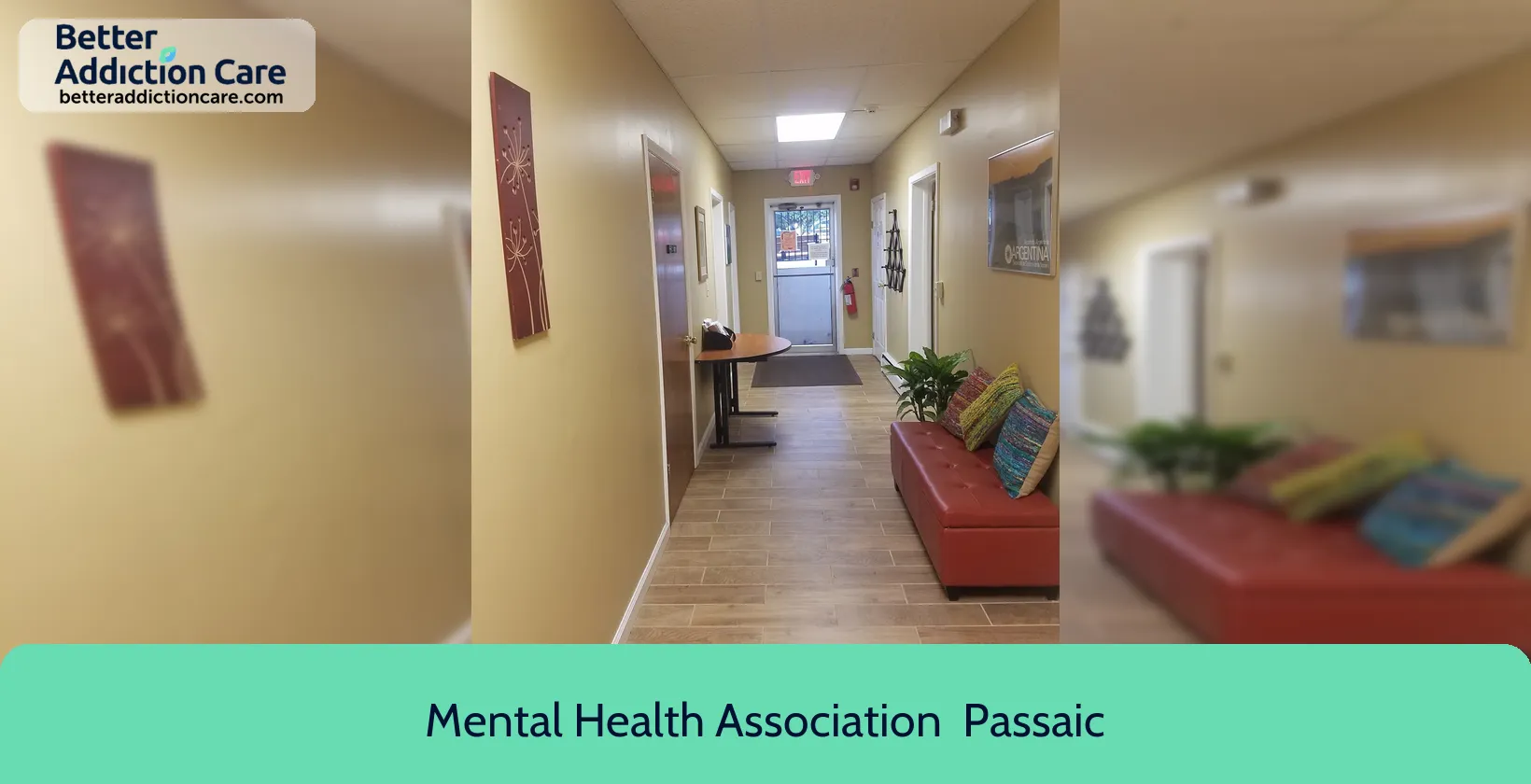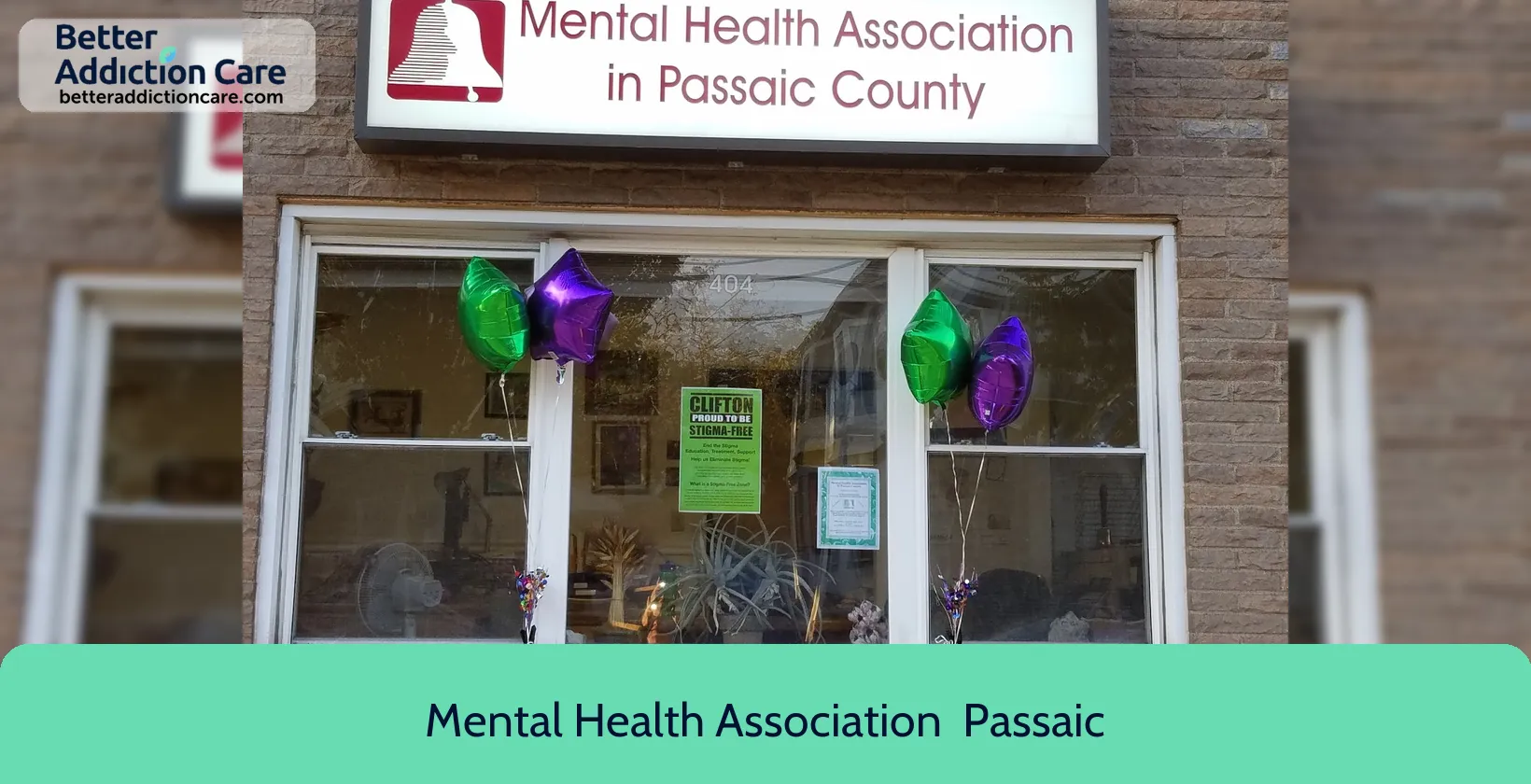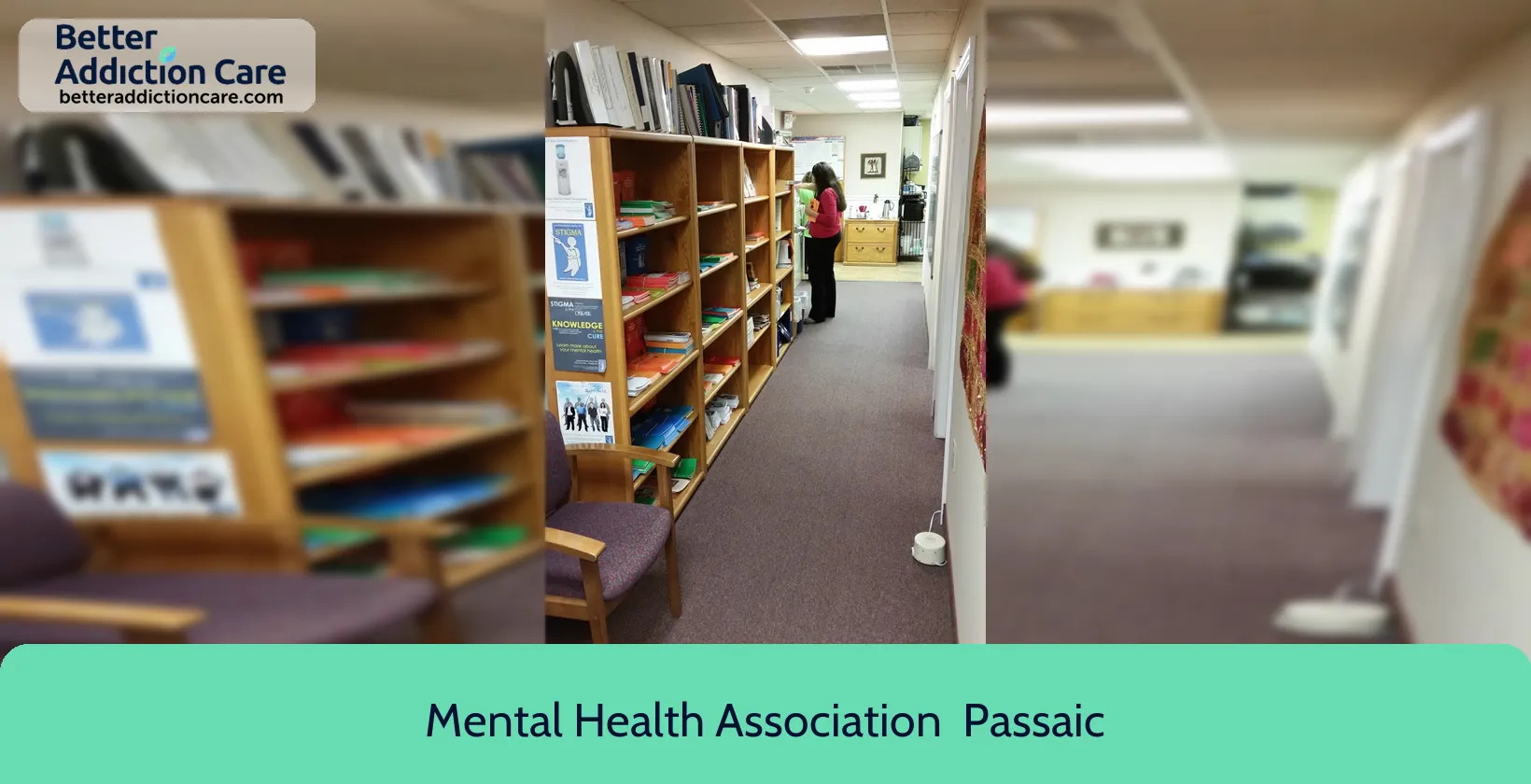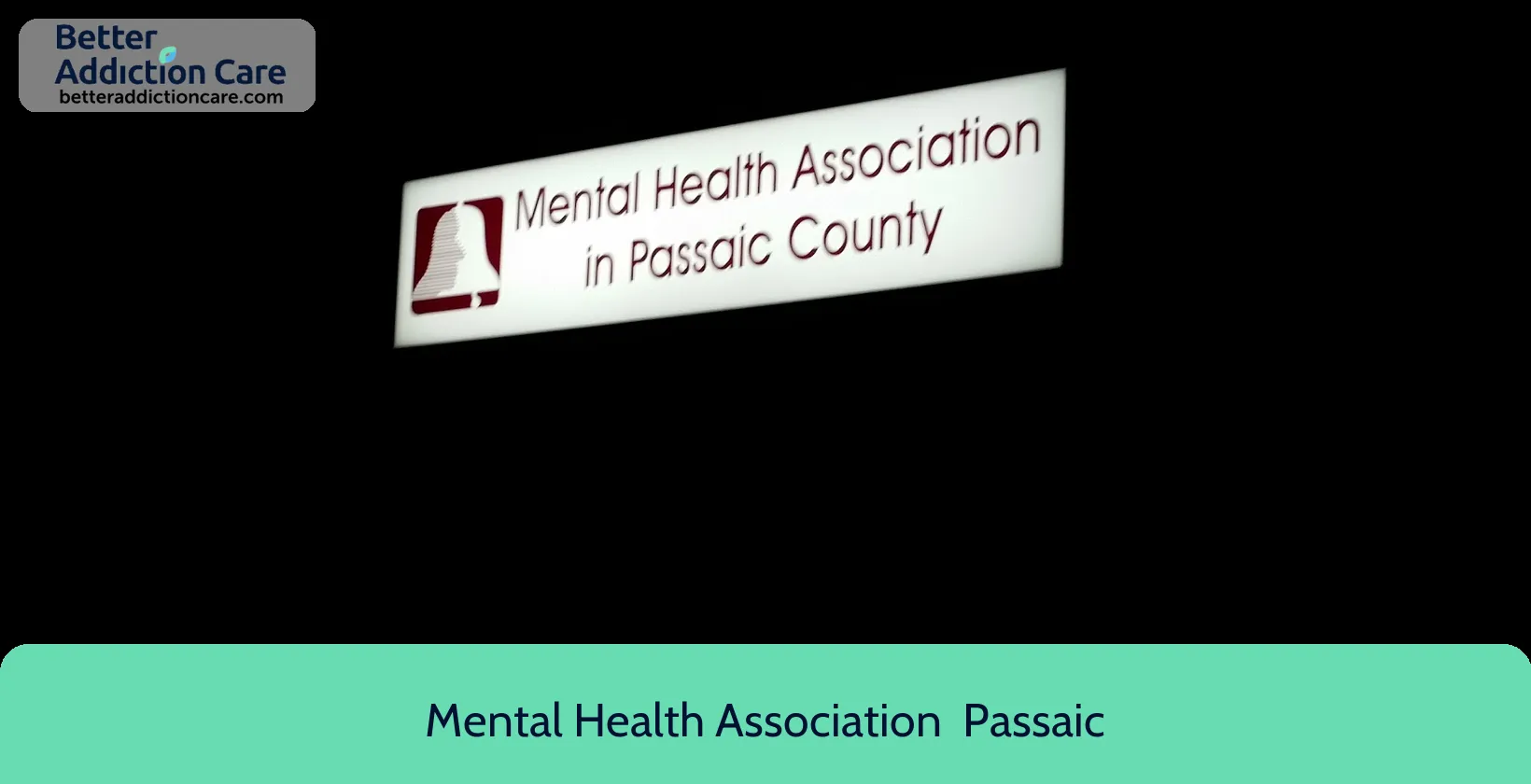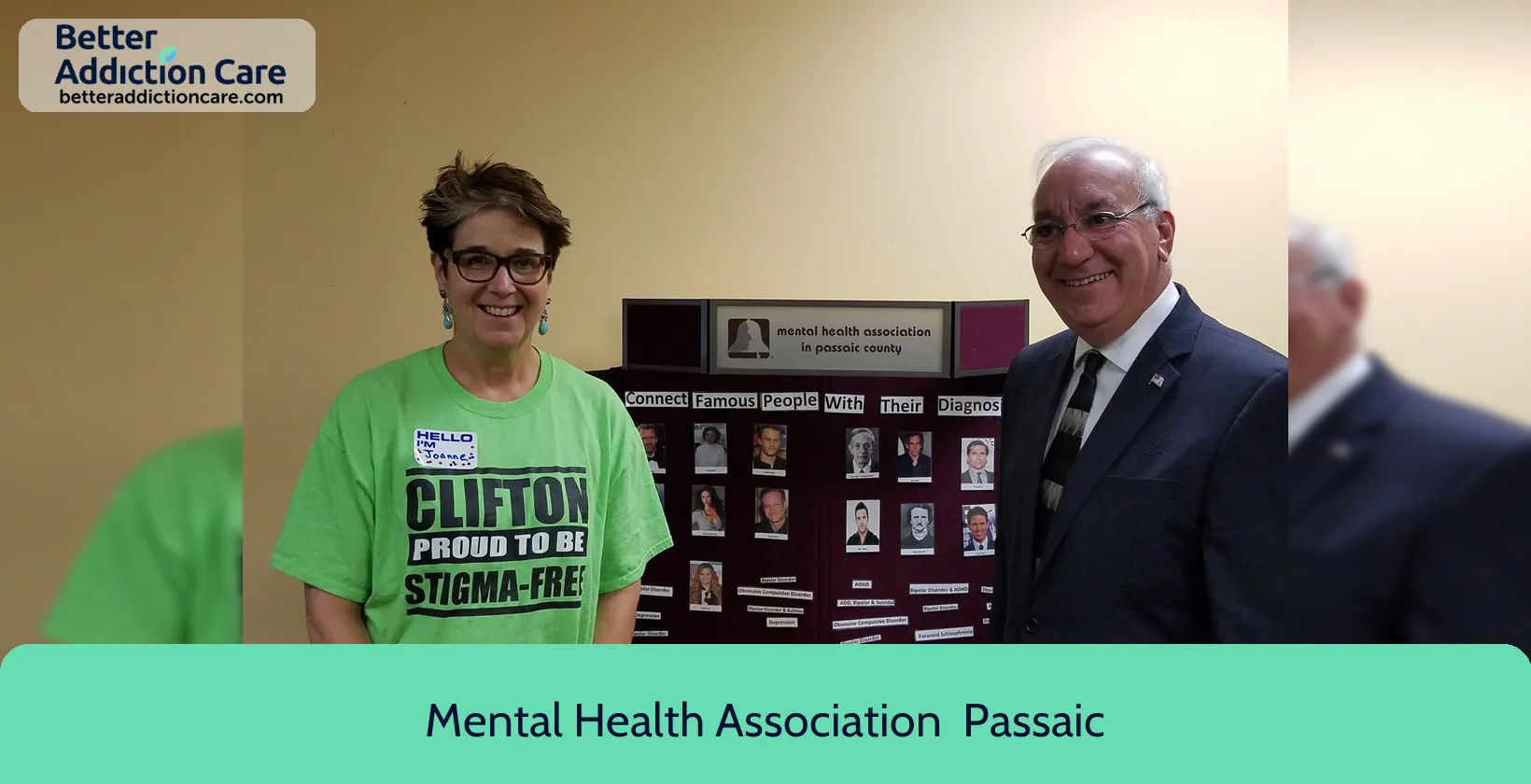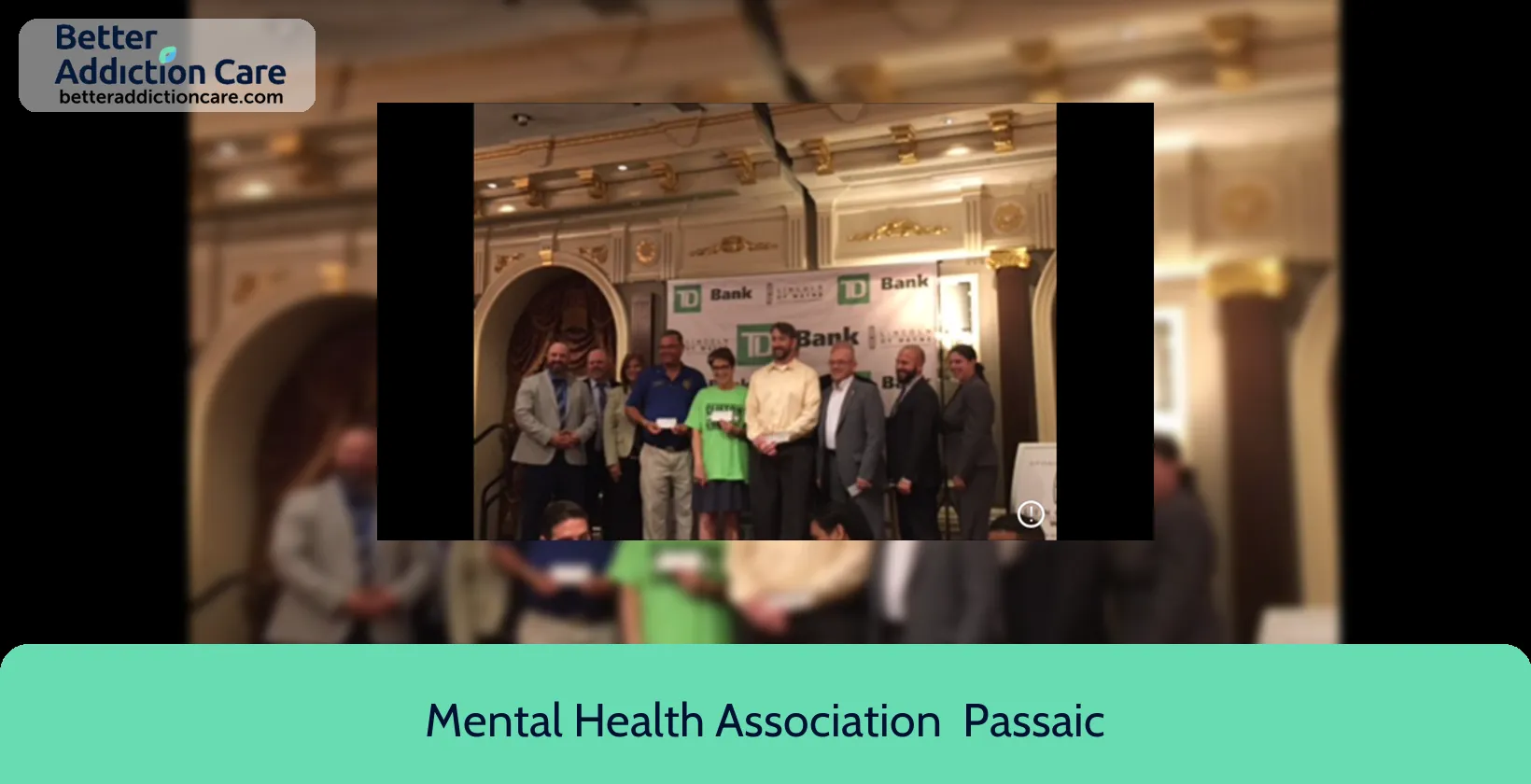Mental Health Association - Passaic County
Overview
Mental Health Association - Passaic County is a mental health treatment center for people seeking treatment near Passaic County. As part of their treatment modalities for recovery, Mental Health Association - Passaic County provides couples/family therapy, group counseling, and cognitive behavioral therapy during treatment. Mental Health Association - Passaic County is located in Clifton, New Jersey, accepting cash or self-payment for treatment.
Mental Health Association - Passaic County at a Glance
Payment Options
- Cash or self-payment
- Medicaid
- State mental health agency (or equivalent) funds
- County or local government funds
Assessments
- Comprehensive mental health assessment
- Comprehensive substance use assessment
Age Groups
- Children/adolescents
- Young adults
- Adults
- Seniors
Ancillary Services
- Case management service
- Court-ordered outpatient treatment
- Education services
- Family psychoeducation
Highlights About Mental Health Association - Passaic County
6.65/10
With an overall rating of 6.65/10, this facility has following balanced range of services. Alcohol Rehabilitation: 8.00/10, Drug Rehab and Detox: 6.00/10, Insurance and Payments: 6.00/10, Treatment Options: 6.61/10.-
Alcohol Rehabilitation 8.00
-
Treatment Options 6.61
-
Drug Rehab and Detox 6.00
-
Insurance and Payments 6.00
Treatment At Mental Health Association - Passaic County
Treatment Conditions
- Mental health treatment
- Substance use treatment
- Co-occurring Disorders
Care Levels
- Outpatient
Treatment Modalities
- Couples/family therapy
- Group counseling
- Cognitive behavioral therapy
- Dialectical behavior therapy
- Integrated Mental and Substance Use Disorder treatment
Ancillary Services
Languages
- Spanish
- Other languages (excluding Spanish)
- Arabic
Special Programs
- Clients with co-occurring mental and substance use disorders
Contact Information
Read our Most Recent Article About Drug Addiction
DISCLAIMER: The facility name, logo and brand are the property and registered trademarks of Mental Health Association - Passaic County, and are being used for identification and informational purposes only. Use of these names, logos and brands shall not imply endorsement. BetterAddictionCare.com is not affiliated with or sponsored by Mental Health Association - Passaic County.
